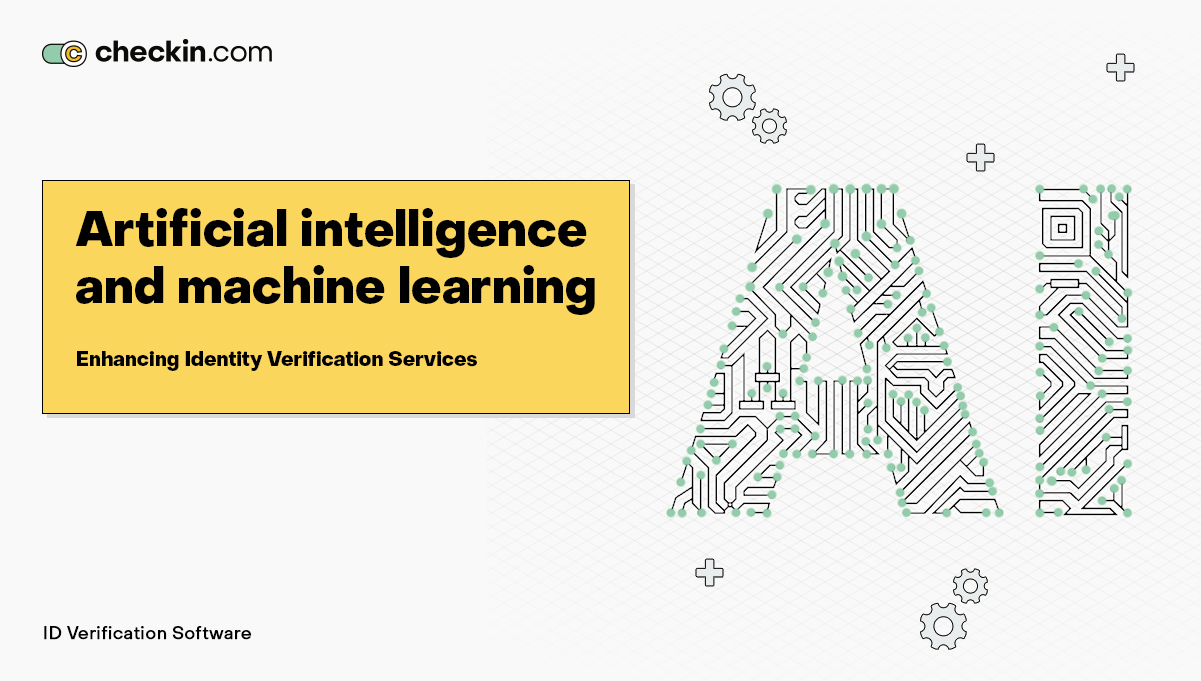
Artificial Intelligence and Machine Learning
18 May 2023
In today’s digital landscape, the importance of robust identity verification cannot be overstated. Businesses face increasing challenges related to identity theft and fraudulent activities.
Fortunately, identity verification service providers are leveraging the power of artificial intelligence (AI) and machine learning (ML) to enhance the accuracy and speed of their processes. In this article, we will explore how AI and ML technologies are transforming identity verification, leading to improved efficiency, enhanced accuracy, and a safer digital environment.
The Role of AI and ML in Identity Verification
Id verification service is a critical process that confirms the authenticity of individuals’ claimed identities. Traditionally, it relied on manual processes, which were time-consuming and prone to errors. However, the integration of AI and ML algorithms has revolutionized identity verification services, providing numerous benefits.
Enhanced Accuracy through AI and ML
AI and ML algorithms enable identity verification service providers to analyze vast amounts of data in real time. By doing so, they develop robust fraud detection models that quickly identify patterns and anomalies indicative of fraudulent activities.
With continuous learning capabilities, these algorithms improve their accuracy over time, adapting to evolving threats and providing a higher level of security for businesses and individuals.
Streamlined User Experience
Gone are the days of submitting piles of documents and undergoing tedious manual checks. AI and ML technologies have transformed the user experience in identity verification.
Advanced methods, including biometric data analysis, facial recognition, and behavioral analytics, have streamlined the verification process. This results in a smoother and more user-friendly experience, reducing paperwork, minimizing friction, and enhancing user satisfaction.
- Enhanced accuracy through real-time data analysis
- Streamlined user experience with advanced verification methods
The Advantages of AI-Powered Identity Verification
Improved Efficiency
AI and ML have revolutionized the speed at which identity verification can be conducted. Manual processes involving document verification and database searches were time-consuming. In contrast, AI-powered systems swiftly analyze data from multiple sources, authenticate documents, and perform background checks in a matter of seconds. This improved efficiency saves time, enables faster customer onboarding, and provides seamless access to services.
Scalability and Adaptability
AI and ML algorithms excel in handling large volumes of data and adapting to changing circumstances. Identity verification service providers can scale their operations without compromising accuracy, even during periods of high growth or seasonal fluctuations in demand. Furthermore, these systems can be updated and improved to counter emerging fraud techniques, ensuring ongoing protection against evolving threats.
- Improved efficiency through swift data analysis
- Scalability and adaptability for businesses with fluctuating demands
Conclusion
Artificial intelligence and machine learning have revolutionized identity verification services. The enhanced accuracy, streamlined user experiences, improved efficiency, and scalability offered by AI and ML technologies make them invaluable tools for businesses.
Although challenges regarding privacy and biases exist, proper safeguards and ethical considerations can address these concerns. The future of identity verification holds great promise, with ongoing advancements in AI and ML leading to a safer and more efficient digital environment.
FAQ
Is AI-powered identity verification secure?
Yes, AI-powered systems incorporate robust safeguards and encryption measures to ensure the security of user data.
Can AI and ML algorithms be biased in identity verification?
Bias can occur in automated decision-making processes. Continuous monitoring and auditing of algorithms are essential to identify and mitigate biases, ensuring fairness and ethical decision-making.
How does AI enhance the user experience in identity verification?
AI enables advanced methods such as biometric data analysis and facial recognition, reducing paperwork and simplifying the verification process, resulting in a smoother and more user-friendly experience.